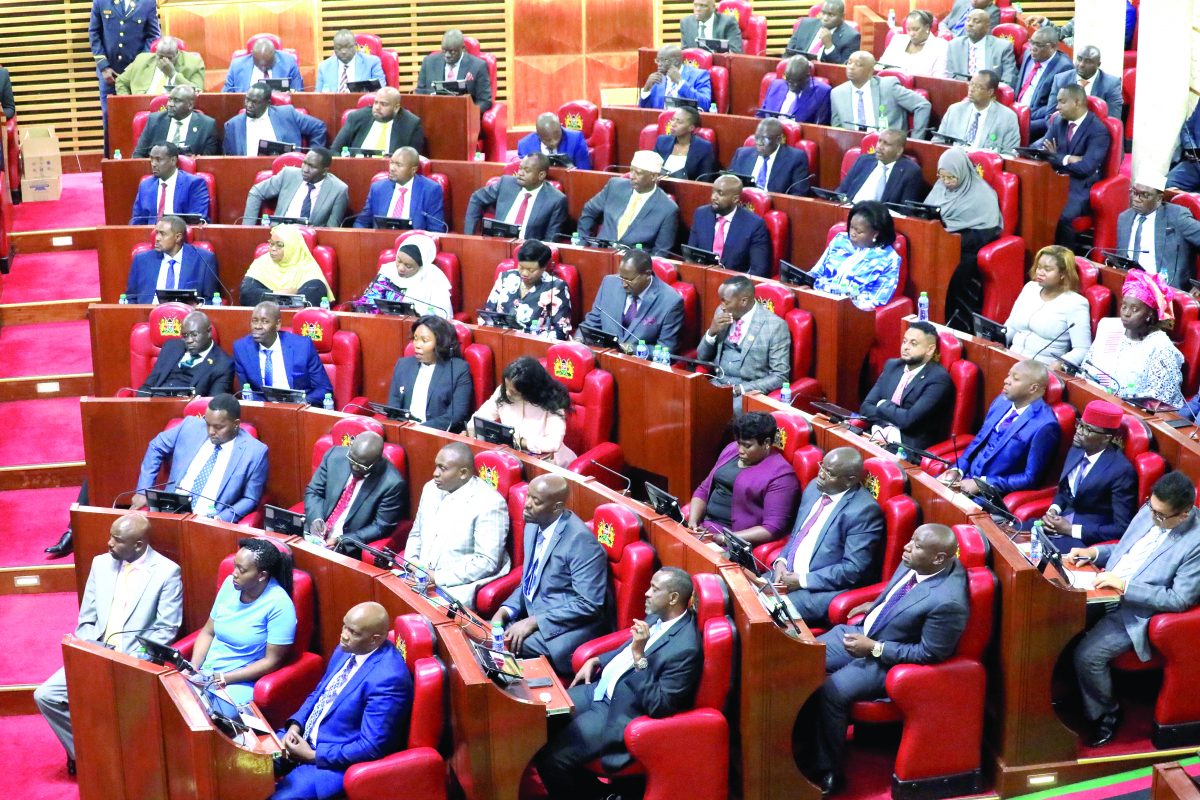Full in-tray for legislators as House sittings resume

The National Assembly resumes its sittings this afternoon, following a two-week recess, amid a charged political environment in the country.
Upon resumption, the House will focus on several crucial legislative matters. However, key among the session’s business will be the push to revive the bipartisan talks, which stalled after the Azimio la Umoja side pulled out citing noncompliance by the Kenya Kwanza.
Wiper leader Kalonzo Musyoka hinted recently that the Opposition was ready to engage with the ruling side to resume the talks. Leader of Majority Kimani Ichung’wa over the weekend said the ruling coalition was ready to resume the talks with the sole agenda being the reconstitution of the Independent Electoral and Boundaries Commission (IEBC).
“We are ready to re-invite the opposition for the bipartisan talks with the singular agenda being the reconstitution of the IEBC,” Ichung’wa said in Kericho over the weekend. First Reading Firstly, the House is expected to undertake the First Reading of three significant Bills – the Water (Amendment) Bill, 2023; the Insurance (Amendment) Bill (National Assembly Bill No. 18 of 2023); and the Vocational Training Bill (Senate Bill No. 3 of 2022).
In addition, the MPs will engage in debates regarding the second reading of various bills. The Food and Feed Safety Control Coordination Bill, 2023, and the National Rating Bill, 2022 are among the Bills in the MPs’ intray MPs will also debate on the Statute Law (Miscellaneous Amendments) Bill, 2022, and the Conflict of Interest Bill, 2023.
During the session, attention will be given to pending bills that had their debates interrupted before the recess. Penal code amendment One such Bill is the Penal Code (Amendment) Bill (National Assembly Bill No. 56 of 2022). Additionally, the Public Service (Values and Principles) (Amendment) Bill (National Assembly Bill No. 46 of 2022), sponsored by North Imenti MP Abdul Dawood, will also be addressed.
The National Construction Authority (Amendment) Bill (National Assembly Bill No. 59 of 2022), sponsored by Nakuru West MP David Gikaria, and the Public Service Internship Bill (National Assembly Bill No. 63 of 2022), fronted by Samburu West MP Naisula Lesuuda, will be in focus.
The chairperson for delegated legislation is expected to present a report on the consideration of the Value Added Tax (Electronic, Internet, and Digital Market Place Supply) Regulations, 2023.
Debates will encompass the Report of the Consolidated Fund expenditures under the Financial Year 2023/2024 Budget Estimates. Additionally, if not already concluded, Nairobi traders who have been eagerly waiting for the promise by Governor Johnson Sakaja to introduce a unified single business permit could be forced to wait a little bit after the county government proposed the introduction of new licenses in the Finance Bill.
The unified single business permit was to help reduce corruption as well as help eliminate several hurdles to doing business in the capital. According to the new proposals contained in the Nairobi City County Finance Bill, 2023, traders will be required to pay for a fire licence certificate, health inspection certificate and loading zone approval license.
The county has not only maintained the above licenses but also increased fees to acquire them. A food handler’s medical certificate that was costing Sh1,000 will now be Sh1,500. An inspection certificate will now be costing between Sh10,000- Sh100,000 depending on the size of the institution.
Small scale traders
Fire license will cost Sh2,000 for small-scale traders with one or two employees and between Sh12,000- Sh40,000 for those with shops and supermarkets.
“An application for the grant of trade license shall be accompanied by the prescribed application fees in the first schedule and be accompanied by the prescribed fees for the licenses and permits that are relevant to the trade license,” reads the bill.
While campaigning Sakaja promised to do away with multiple licenses by aggregating all the licenses into a single business permit with only a QR code for scanning. The county in an effort to increase its revenue has also gone for the small fish in the pond.
Increased cess
Those who sell dry and fried fish will be required to pay Sh,1000 to the county while hawkers who sell food with vehicles will be required among other licenses to pay Sh7,000 on top of other required licenses. Alcoholic drink retailers will also pay double what they pay for a license.
Those who pay Sh12,000 will be required to pay Sh24,000 while those who pay Sh25,000 will be required to pay Sh50,000. This is exclusive of other licenses. Sakaja has also gone to the small traders who sell sweets on the streets as they will now be required to pay Sh2500 as a license to city hall.
City hawkers will also be forced to dig a little deeper Into their pockets as they will now pay Sh50 from Sh20 the House will address the Report of the Kenyan Delegation to the Parliamentary Dialogue on the United Nations Convention Against Corruption (UNCAC) and the Global Organisation of Parliamentarians against Corruption (GOPAC) Annual General Meeting.
The House has also lined up a total of 19 pending motions, which are at various stages in the House urging various government interventions.












